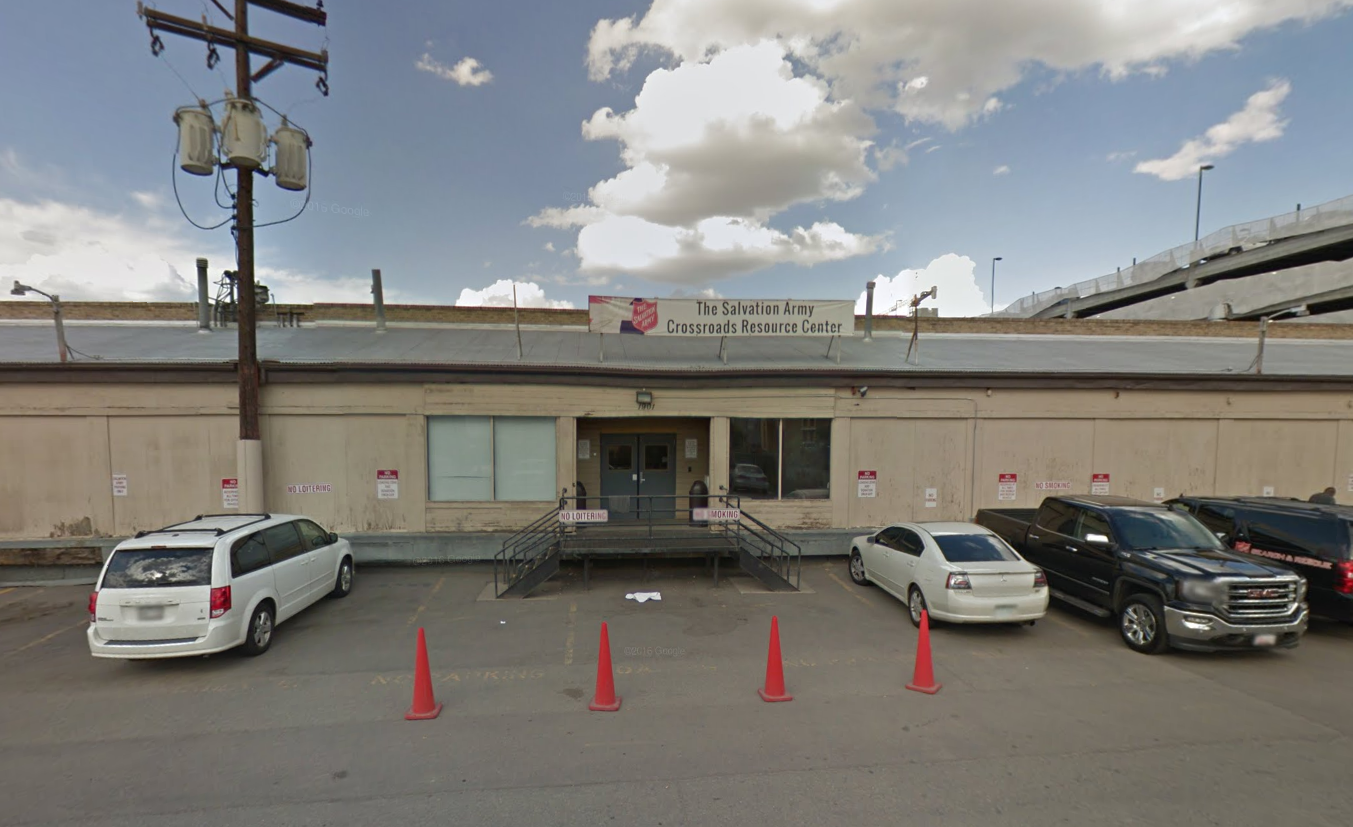
Google Street View

Audio By Carbonatix
After several years of uncertainty about its future, the Salvation Army’s Crossroads Center in RiNo is set to continue serving people experiencing homelessness in Denver in much the same way it has for the past few decades. But as soon as next month, it could have a new landlord: the City and County of Denver.
Housing officials announced Friday, August 23, that the city plans to complete the purchase of the Crossroads Center in September, pending approval by Denver City Council. The overnight shelter, which serves up to 475 people each night, will be leased back to the Salvation Army for up to three years following the sale.
“The City and County of Denver approached the Salvation Army with a letter of intent to purchase this facility from us,” says Major Mike Dickinson, divisional commander for the nonprofit organization, which has operated Crossroads since 1983. “A key component for us was that they would lease it back to us so we could continue to operate the program. We get to continue to offer services to our neighbors in need through this process.”
Crossroads had previously faced an uncertain future after numerous code violations ranging from overcrowding and sanitation issues to inadequate emergency exit routes were reported by Denver Fire Department inspectors in 2017. Not long afterward, the Salvation Army said it would consider selling the property, located in one of Denver’s most rapidly changing neighborhoods, and moving its operations elsewhere. While the organization last year said that it had spent $250,000 making repairs and upgrades and planned to stay put, officials acknowledged Friday that other prospective buyers had remained interested in the property.
“We feel it’s an important proactive step to take to secure this part of our emergency overnight shelter system,” says Britta Fisher, Denver’s Chief Housing Officer. “There was interest in the site from other parties, and we felt that it was an important part of our system and our response to people experiencing homelessness each night in Denver.”
Crossroads is the city’s largest shelter by number of beds, typically serving about 350 people in the summer and hitting capacity in the winter. Dickinson says city-owned facilities aren’t an “unusual” arrangement for the Salvation Army nationwide, and the city currently owns an overflow emergency shelter at 48th Avenue and Colorado Boulevard.
Mayor Michael Hancock’s administration, which is in the process of creating a new Department of Housing Stability to better coordinate its homelessness and affordable housing programs, plans to make significant investments in Crossroads and other facilities as it continues to overhaul its approach to services for the homeless. Among the potential changes is an expansion of daytime services at Crossroads, which currently operates largely as an overnight facility.
“It’s something we’ve been in conversation about with the Salvation Army at this location, but also our service providers in general,” says Fisher. “The building assessment will help us look at what are some of the initial investments we want to make, as well as how we engage our neighbors, city council and the community in the future of this facility.”
The city’s $10.5 million purchase of Crossroads must be approved by city council, which will take up the issue at the August 27 meeting of the Finance and Governance Committee.